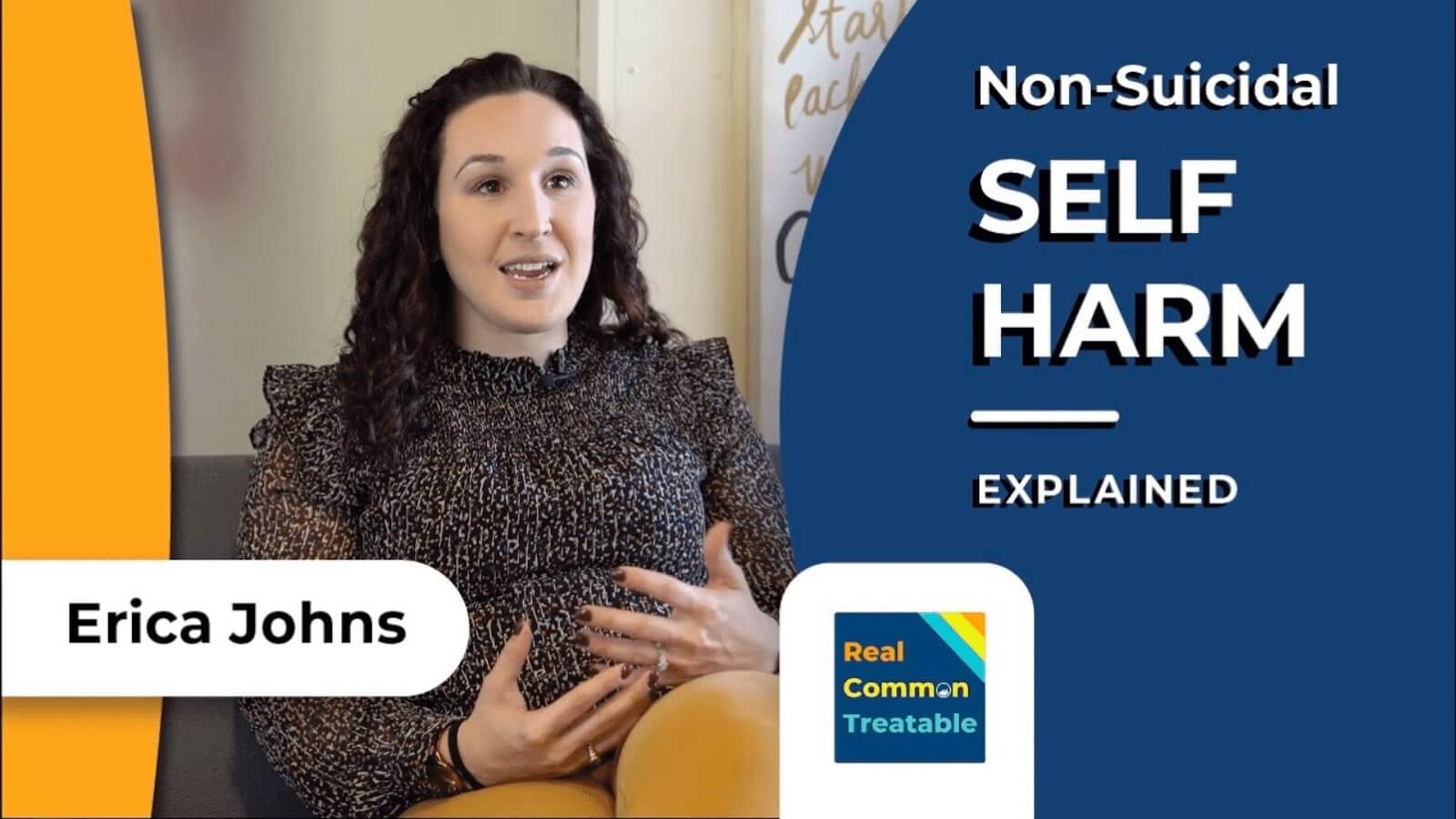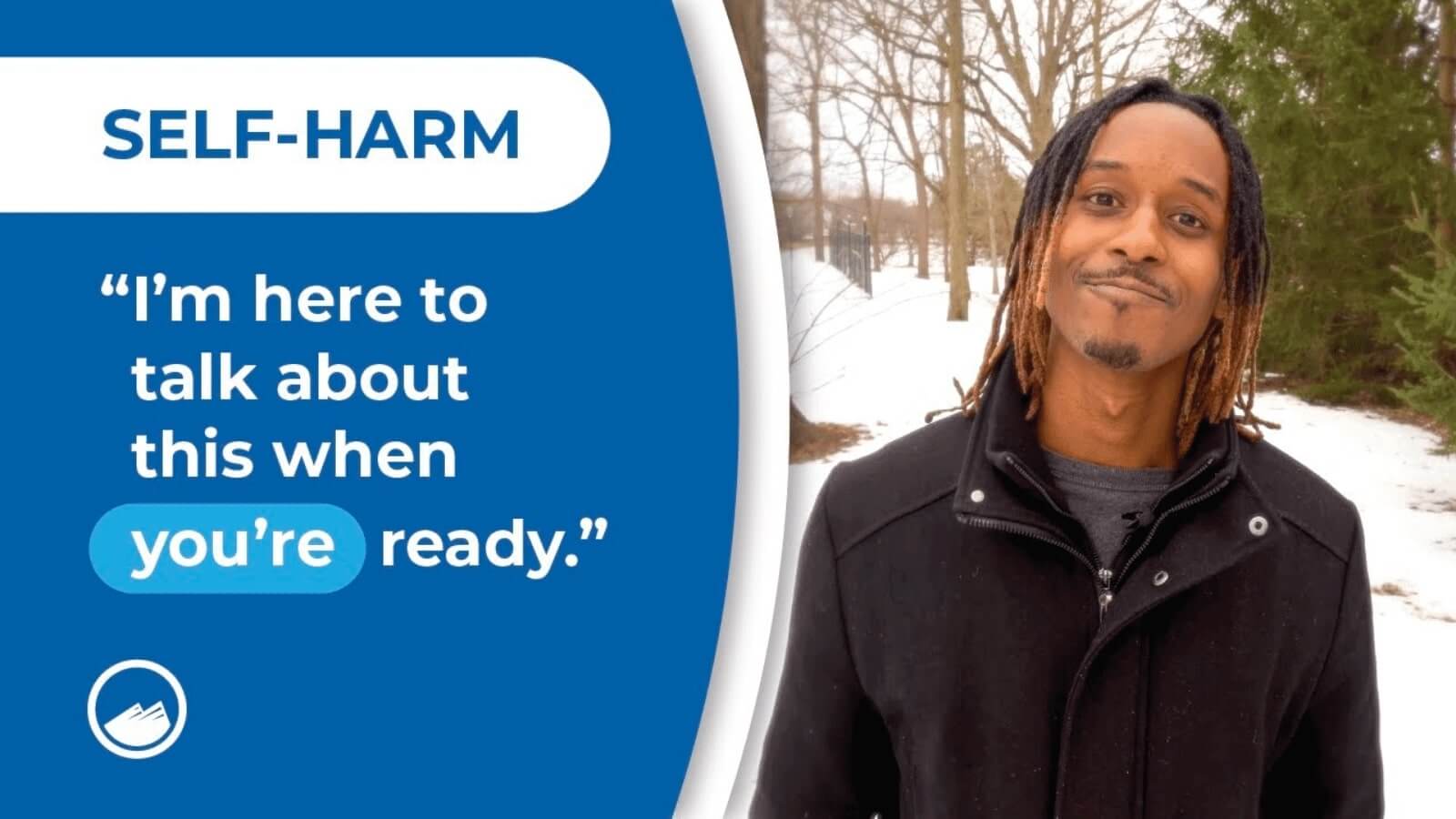From the shock of finding out that someone you’re close to has been self-harming, to listening and providing a safe place for your friend to open up – read on for tips and mental health resources.
The Warning Signs of Self-Harm
There are some physical traits you may pick up on in someone who has hurt themself intentionally. Scars, scabs, and cuts on the skin that cannot be explained or make the person visibly uncomfortable when questioned about them could indicate they are self-harming.
These marks will often be located on the wrists, arms, stomach, or thighs. A few other things that may be noticeable in the physical appearance of someone who self-harms:
- wearing long sleeves in warm weather
- sharp objects in their possession (razors, knives, nail clippers)
- bloodstains on clothing or other possessions
What kind of terminology could indicate someone is self-harming or considering it?
A good way to recognize that someone around you is struggling mentally is to listen for a change in their personality and the use of certain words or phrases. Watch out for your friend using phrases like:
- “I’m just tired”
- “This always happens to me”
- “I just feel numb”
- “No one cares”
- “I’m fine”
- “What’s the point?”
What to Do When Your Friend is Self-Harming
If you suspect your friend is self-harming, the main goal is to provide a safe, non-judgmental place for them to open up. Finding out a friend is hurting themself is emotionally disturbing, and it can be easy to act impulsively and either lash out in anger or dismiss the self-harm altogether. Instead, take a deep breath, be supportive, and follow these steps.
1. Approach the topic at the right time.
Make sure you are alone with your friend when you bring up the topic of suspected self-harm. Start by asking questions without overreacting or “calling out” your friend – questions like, “I noticed some scratches on your arm, and I’m worried because I care about you. Have you been hurting yourself?” or “I can see that you’re in a lot of pain. Do you want to tell me what’s been going on?”
2. Listen and seek understanding.
No matter what you know about mental illness, it’s impossible to completely understand what someone else is thinking or feeling. Remember that depression is extremely isolating, and people with these symptoms may not be thinking realistically or considering the big picture. It can be helpful to relate to your friend’s feelings, but often the best thing to do is just listen for a while.
3. Be supportive and encouraging.
In the case that your friend is not ready to talk about their self-harm, you can still support them and make an impact on their situation. Sometimes people are not ready to explain their feelings but still value having someone they care about just sitting with them.
Instead of setting ultimatums or making your friend promise to stop self-harming, remind your friend that you care about them and will continue to check on them.

4. Help them find help when they are ready.
Finally, get an understanding of how open your friend is to seeking help for the pain they’ve been experiencing. It’s good to encourage your friend to tell their parents or other people they trust, but they may feel guilt or shame about their scars. Beyond having the support of friends and family, everyone with depressive symptoms like self-harm needs to talk to a licensed professional.
Help for Self-Harm is Available
There are many resources available to get help with self-harm. You can text the Crisis Text Line at 741741 in the US, or call the US National Suicide Prevention Lifeline at 988. To talk through your situation and get a diagnosis, contact your primary care doctor or search for one in your area.








